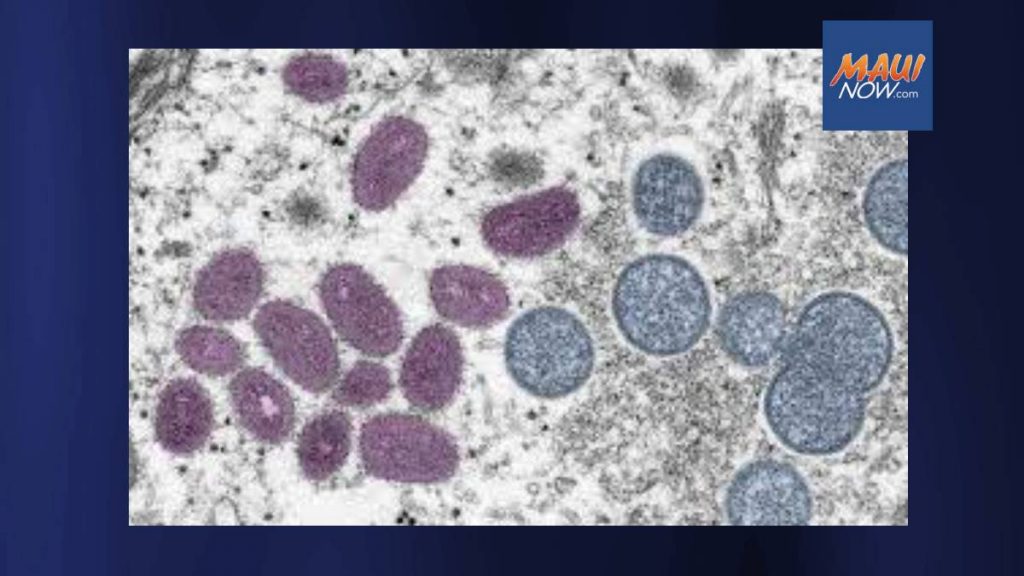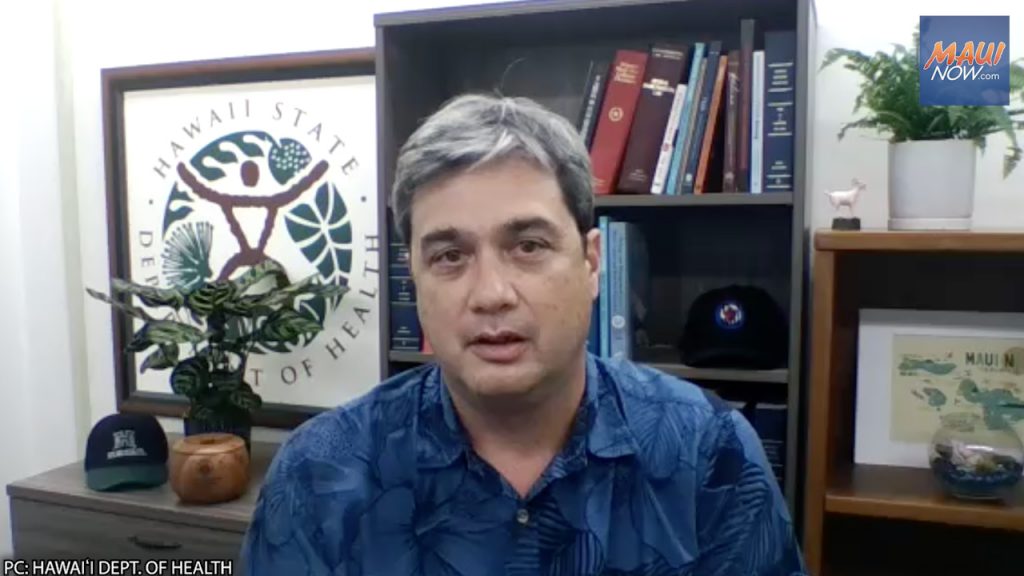Monkeypox infections in Hawaiʻi total six, DOH receives 357 doses of vaccine

The total number of confirmed monkeypox infections in Hawaiʻi to date is six–all on the island of Oʻahu. The state Department of Health reports that it has established links between all of the diagnosed cases.
Connections include a variety of epidemiological linkage that state health officials say could include household contacts, sexual partners, and other intimate contacts.
The state Department of Health has received 357 doses of the Jynneos vaccine, which is used to prevent monkeypox in adults. The FDA-approved two-dose vaccine is administered with doses taken 28 days apart.
Health officials say they have adequate supply of vaccine for the amount of close contacts that they have been able to identify to date.

“Getting vaccinated reduces the chance of getting monkeypox, and it can reduce symptoms if you do get it,” said Deputy State Epidemiologist Dr. Nathan Tan in a media briefing on Wednesday.
“While most people diagnosed with monkeypox experience mild to moderate illness, the rash and sores can be itchy and painful,” according to Dr. Tan. “People who get vaccinated should continue to take steps to protect themselves from infection by avoiding close, skin-to-skin contact, including intimate contact with someone who has monkeypox, or is suspected of having monkeypox.”
Since vaccine supplies are currently limited, the DOH has developed a strategy for vaccine allocation in Hawaiʻi to protect those at increased risk of infection or severe disease.
“Nationwide, the current cases are primarily spread among social networks of gay, bisexual, and other men who have sex with men,” said Dr. Tan, noting that this community is currently at greater risk of exposure. However, anyone who has close contact with someone with monkeypox is at risk of infection, regardless of sexual orientation or gender identity.
Health officials say the first phase will use the current allocation to vaccinate close contacts of the people known to have monkeypox, and for people who may have had high risk exposures in venues or areas where monkeypox is actively spreading.
The department is arranging vaccine distribution and administration, and vaccines will not be available through your doctor under the first phase, according to the DOH.
“If you were a close contact of someone diagnosed with monkeypox, please contact your healthcare provider,” Dr. Tan advised, noting that the department is working with healthcare providers to ensure these individuals have access to vaccinations.
The department anticipates the receipt of additional doses in the coming weeks. The second phase of the distribution plan calls for broader vaccination of people who may be at risk of severe illness or future exposure.
According to State Epidemiologist Dr. Sarah Kemble, Phase 1 of the distribution focuses on expanded post-exposure individuals who have been in close contact with known cases, with a focus on those who are very likely to have been exposed to monkeypox. Phase 2 looks at a broader pre-exposure campaign, which looks more at risk factors and criteria for potential severe outcomes.
According to the DOH, the federal government is ramping up production of Jynneos, and anticipates more than 1.6 million doses to be made available nationwide this year.
Monkeypox is a rare disease caused by the monkeypox virus. Infection begins with flu-like symptoms such as fever, headache, muscle aches, chills, exhaustion, and swollen lymph nodes. Infection progresses to a rash or sores, often on the hands, feet, chest, face or genitals. Individuals generally become ill within 21 days of exposure.










